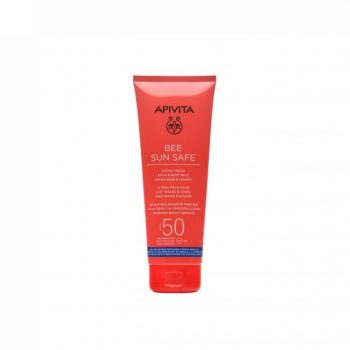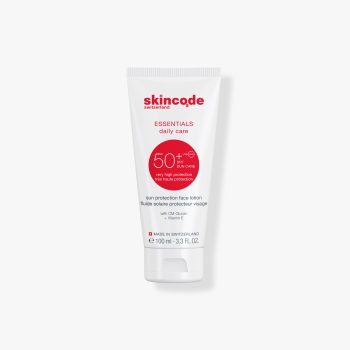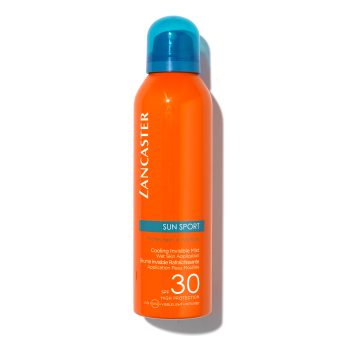Sunscreen is an absolute skincare must-have, especially for people who live in warmer countries! Wearing sunscreen is the easiest way to protect your skin against harmful sun radiation, which causes premature skin aging, sunburn and skin cancer. If you want your skin to look younger and healthier, make sunscreen a part of your daily beauty routine.
However, most of us are still confused when it comes to choosing a reliable sunscreen.
We’ve got you covered!
Follow these simple guidelines and be protected this summer.
A good sunscreen has to protect against both UVB and UVA rays.
Most people only consider the SPF number when choosing a sunscreen. It is important to remember that SPF or the SUN PROTECTION FACTOR measures a sunscreen’s ability to filter only UVB rays and doesn’t say anything about the protection from the UVA radiation. Both types of radiation are harmful to your skin! UVA rays don’t cause sunburn, but also contribute to skin pigmentation and aging, because they penetrate deeper into the skin and damage collagen fibers. Moreover, about 75% of UVA rays pass through ordinary glass. So you are not protected even indoors!
Bottomline: when choosing a sunscreen, always check if it protects you against UVA, which is indicated by the letters UVA in a circle symbol
Choose a high SPF sunscreen
What does SPF mean? The SPF number represents the sunscreen’s ability to delay the onset of sunburn on the skin. For example, an SPF of 30 means that you could stay in the sun 30 times longer before you get sunburned than you would be able to stay without applying sunscreen. Keep in mind that this is true only technically speaking. Sunscreen only works if applied in the recommended amount and wears off, so that you have to reapply it to keep being protected.
Dermatologists always recommend using a sunscreen with an SPF of at least 30, the higher this number, the more harmful rays are blocked.
Bottomline: choose a high-SPF sunscreen and re-apply it as recommended.
Chemical or natural filters?
Chemical (or organic) sun filters are composed of various synthetic compounds and work by absorbing UV radiation and converting it into heat, which is then released from the skin. Chemical sunscreens are typically clear and easily absorbed into the skin.
Natural (also known as physical) Sun Filters use mineral compounds such as zinc oxide and titanium dioxide as their active ingredients. These minerals act as physical barriers that reflect UV radiation away from the skin. Mineral sunscreens are generally thicker and can leave a white cast on the skin, although newer formulations have reduced this effect.
Both chemical and natural sun filters can provide effective sun protection when used correctly. Chemical sunscreens often offer broader coverage across the full spectrum of UVA and UVB rays. However, newer formulations of mineral sunscreens have improved their efficacy, and many now provide broad-spectrum protection as well.
Skin Sensitivity: Some individuals may have skin sensitivities or allergies to certain chemical sunscreens. If you have sensitive skin or a history of adverse reactions, mineral sunscreens are generally considered gentler and better tolerated.
Bottomline: both types of filters do the job, but you might prefer chemical filters if you have oily or darker-toned skin and natural ones if your skin is sensitive and prone to allergies.
Check if your sunscreen is water-resistant.
Sunscreen manufacturers these days prefer to use the term “water-resistant” instead of “waterproof”, because it is misleading as no sunscreen is 100% waterproof. Choosing a water-resistant sunscreen is recommended when you are going to the beach or doing outdoor physical activities. Always choose a water-resistant sunscreen for kids, which will offer the little ones more protection, but alway reapply it as recommended (every 2 hours or after exposure to water).
Bottomline: choose a water-resistant sunscreen for kids, when going to the beach and doing sports, but don’t forget to re-apply it!
Have a nice and safe summer!




